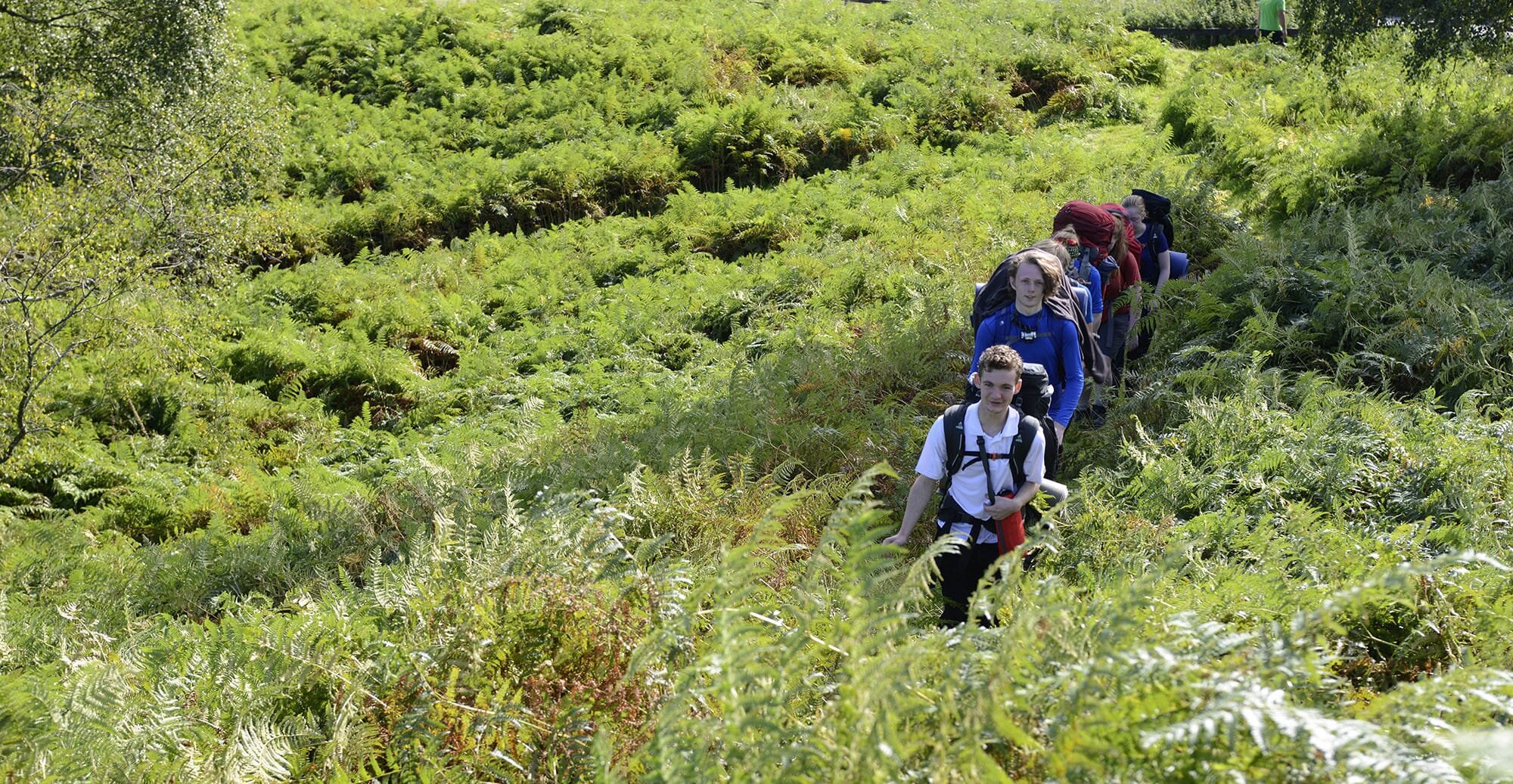20 conditions of the DofE Expedition
This is a handy summary for everyone about to do their DofE qualifying expedition.
Please talk to your DofE Leader or Expedition Supervisor if you have any questions or need further advice.
Planning the expedition
The team must plan and organise the expedition; all members of the team should be able to describe the role they have played in planning.
The expedition must have an aim. The aim can be set by the Leader at Bronze level only.
All participants must be within the qualifying age of the programme level and at the same Award level (i.e. not have completed the same or higher level of expedition).
There must be between four and seven participants in a team (eight for modes of travel which have tandem)
The expedition should take place in the recommended environment.
Bronze: Expeditions should be in normal rural countryside – familiar and local to groups.
Silver: Expeditions should be in normal rural, open countryside or forest – unfamiliar to groups.
Gold: Expeditions should be in wild country (remote from habitation) which is unfamiliar to groups.
Accommodation must be by camping or other simple self-catering accommodation (e.g. camping barns or bunkhouses).
The expedition must be of the correct duration and meet the minimum hours of planned activity.
Bronze: A minimum of 2 days, 1 night; 6 hours planned activity each day.
Silver: A minimum of 3 days, 2 nights; 7 hours planned activity each day.
Gold: A minimum of 4 days, 3 nights; 8 hours planned activity each day.
All expeditions must be supervised by an adult (the Expedition Supervisor) who is able to accept responsibility for the safety of the team.
Assessment must be by an accredited Assessor. At Bronze level only, the Assessor may also be the Expedition Supervisor.
Expeditions will usually take place between the end of March and the end of October. They may take place outside this period, if so, non-camping accommodation options should be considered.
Training and practice
Participants must be adequately trained to safely undertake a remotely supervised expedition in the environment in which they will be operating.
Bronze: Teams must complete the required training.
Silver: Teams must complete the required training and a practice expedition of a minimum 2 days, 2 nights.
Gold: Teams must complete the required training and a practice expedition of a minimum 2 days, 2 nights.
During the expedition
All expeditions must be by the participants’ own physical effort, without motorised or outside assistance. Mobility aids may be used where appropriate to the needs of the participant.
All expeditions must be unaccompanied and self-sufficient. The team must be properly equipped, and supervision must be carried out remotely.
Teams must possess the necessary physical fitness, first aid and expedition skills required to complete their expedition safely.
Groups must adhere to a mobile phone use policy as agreed with their Expedition Supervisor and Assessor. This agreement should also include use of other electronic equipment.
Participants must behave responsibly with respect for their team members, Leaders, the public and animals.
Groups must understand and adhere to the Countryside /Scottish Outdoor Access, Highway and Water Sports Codes (as appropriate).
Participants must plan an appropriate expedition menu, including cooking and eating a substantial hot meal on each day. This is optional on the final day.
Post expedition
Participants must actively participate in a debrief with their Assessor at the end of the expedition.
At Silver and Gold level, a presentation must be prepared and delivered after the expedition.










